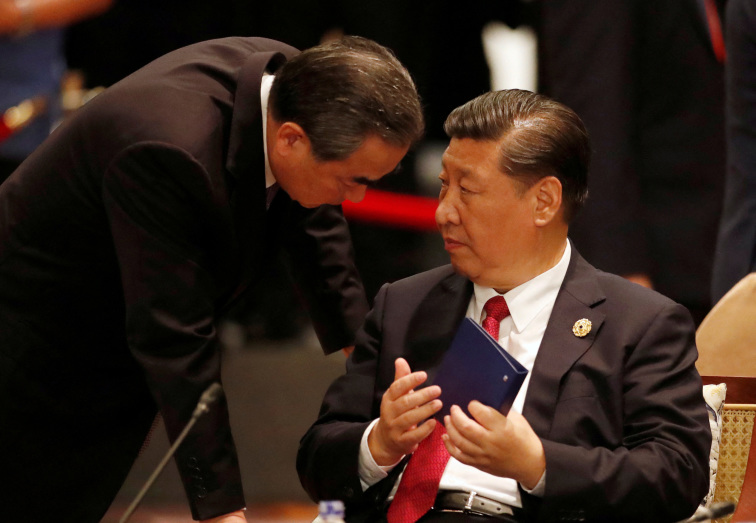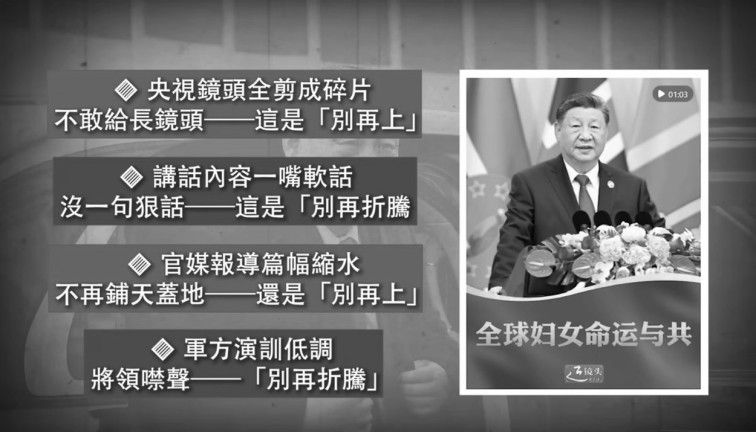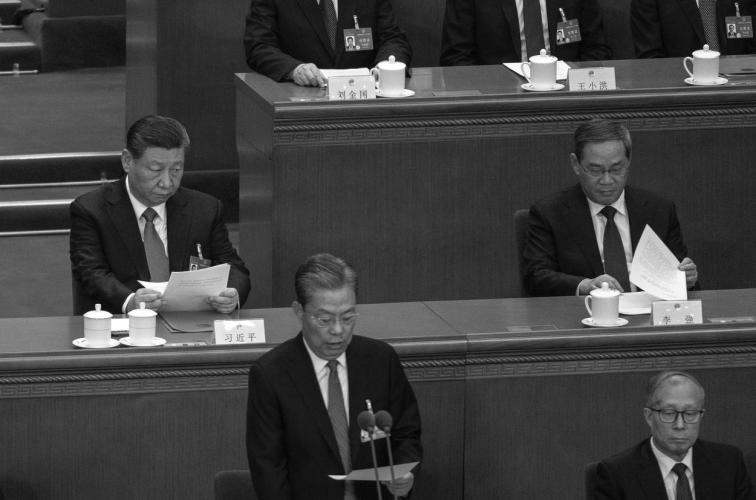U.S. Treasury Secretary Bessent testifies before a House Ways and Means Committee hearing on Capitol Hill
[People News] On October 14, U.S. Treasury Secretary Bessent criticized Beijing in an interview with the Financial Times, accusing it of dragging down the global economy by imposing a new round of export restrictions on rare earths. On the same day, China’s Ministry of Commerce announced that it had placed five U.S.-related subsidiaries of South Korea’s Hanwha Ocean Co., Ltd. on its countermeasure list. Beijing’s aggressive stance is expected to push U.S.–China relations back into a deadlock.
On October 9, Beijing announced an expansion of export controls on rare earth–related products, angering U.S. President Trump, who not only threatened to impose a 100% tariff but also hinted that there was no need to meet with Xi Jinping. Relations quickly froze, though on October 12, Trump again released signals of reconciliation.
China’s new export control regulations on rare earth products stipulate that if a globally sold item contains rare earth materials from China accounting for 0.1% or more of the product’s total value, it must obtain a Chinese export license.
According to Radio France Internationale (RFI), Bessent told the Financial Times: “This shows just how weak the Chinese economy really is—Beijing wants to drag other countries down with it.”
China’s latest export restrictions on rare earths have been described as “almost unprecedented” and could disrupt the global economy. Observers widely interpret the new policy as Beijing’s retaliatory move against Washington’s recent trade pressure.
“But as the world’s largest supplier, if China tries to slow the pace of the global economy, it will end up hurting itself the most,” Bessent added.
RFI noted that Bessent’s remarks may ignite the latest round of U.S.–China trade hostilities, once again heightening tensions between the two powers.
On October 14, China’s Ministry of Commerce published on its website the “Decision on Countermeasures Against Five U.S.-Related Subsidiaries of Hanwha Ocean Co., Ltd.” Citing the Anti–Foreign Sanctions Law and related implementation regulations, and with approval from the National Anti–Foreign Sanctions Coordination Mechanism, Beijing decided to include the five companies on its countermeasure list, prohibiting any Chinese entities or individuals from engaging in transactions, cooperation, or related activities with them.
The decision emphasized that this was a response to the U.S. Section 301 investigation and measures targeting China’s maritime, logistics, and shipbuilding industries.
In addition, Beijing reaffirmed that it would not allow any rare earth materials to be used for military purposes—its first-ever export restriction targeting military applications. This move is seen as a direct strike against the U.S. defense industry, as many American weapons systems—including F-35 fighter jets, Tomahawk cruise missiles, and smart bombs—depend on magnetic components made from Chinese rare earths.
The renewed U.S.–China trade friction has clearly impacted global financial markets. Before the October 14 market open, U.S. stock futures plunged: the Dow Jones Industrial Average fell 0.6%, S&P 500 futures dropped 1%, and the Nasdaq index fell 1.3%.
Asian markets also came under pressure. China’s CSI 300 Index fell 0.6%, Hong Kong’s Hang Seng Index slipped 1.2%, and Japan’s Nikkei Index tumbled 2.1%. Cryptocurrencies were hit as well—Bitcoin fell 2.7%, and Ethereum plunged 5%.
Bessent’s Three Reasons for Beijing’s Escalation of Rare Earth Export Controls
According to Central News Agency (CNA), in an October 13 appearance on Fox Business Network’s morning news program, Bessent analyzed three main reasons behind Beijing’s sudden tightening of rare earth exports.
First, China’s economy is weak, and the regime may be focusing on its internal economic troubles.
Second, Beijing opposes the United States while funding wars, whereas the U.S. is working to promote global peace.
Third, China may have miscalculated ahead of the planned late-October Trump–Xi meeting in South Korea.
Bessent stressed that playing tricks ahead of a formal meeting with Trump is a “bad idea” and “a miscalculation.” He added, “The U.S. is still communicating and confident about moving forward.”
When asked whether Trump and Xi would still meet, and whether the new tariffs and other bans set for November 1 would be postponed until after the meeting, Bessent replied that Trump had posted on his personal social media account suggesting the measures could be delayed, allowing time for the two sides to meet and talk.
Bessent also said Trump believes this may have been a decision made by lower-level Chinese officials.
On October 13, China’s State Council–affiliated China.com published an article titled “China Is Becoming the ‘Manager’ of the Global Rare Earth Order,” authored by Wang Ziyang, an assistant researcher at the Chinese Academy of Social Sciences’ Institute for Peace and Development Studies.
The article admitted that “upgrading rare earth export controls at this time” was both a “necessary move” to counter illegal overseas transfers and re-exports to sensitive sectors, and “a countermeasure against the United States’ continued escalation of its suppression of China.” It further declared that Beijing is becoming the “manager” of the global rare earth order.
△











News magazine bootstrap themes!
I like this themes, fast loading and look profesional
Thank you Carlos!
You're welcome!
Please support me with give positive rating!
Yes Sure!